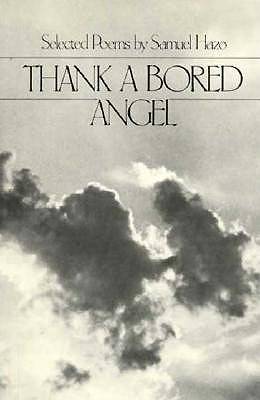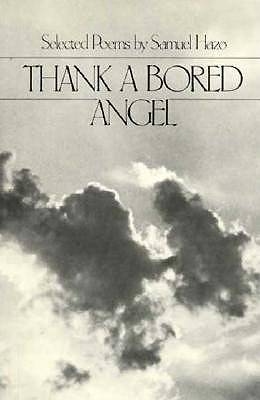
- Afhalen na 1 uur in een winkel met voorraad
- Gratis thuislevering in België vanaf € 30
- Ruim aanbod met 7 miljoen producten
- Afhalen na 1 uur in een winkel met voorraad
- Gratis thuislevering in België vanaf € 30
- Ruim aanbod met 7 miljoen producten
Zoeken
Omschrijving
Thank a Bored Angel: Selected Poems by Samuel Hazo brings together the poetry of twenty-two years, drawn from eight previous volumes. Assembled here are selections from Discovery (1959), The Quiet Wars (1962), Listen with the Eye (1964), My Sons in God (1965), Blood Rights (1968), Once for the Last Bandit (1972), Quartered (1974), and To Paris (New Directions, 1981). In his preface, Hazo affirms that "each of these poems touches on themes that are still alive in me--alive in that they seem inexhaustible"; all are rendered in the poet's own voice, not "in what is irritatingly called a 'persona, '" and none, he says, either when originally composed or now, could be expressed differently. Casting back to the adventures and attachments of half a century, Thank a Bored Angel presents varied, colorful portraits from the poet's life--as father, son, brother, husband, traveler, army lieutenant, university professor, writer. It is emotion, fancy, speculation--the reflections cast in his mind by events and "accidents of place"--that give them weight. Likewise, Hazo's considerable passion and stylistic range are not flaunted but, measured by conscience and intent, constitute the poems' inimitable, penetrating lyricism.
Specificaties
Betrokkenen
- Auteur(s):
- Uitgeverij:
Inhoud
- Aantal bladzijden:
- 118
- Taal:
- Engels
Eigenschappen
- Productcode (EAN):
- 9780811208680
- Verschijningsdatum:
- 17/06/1983
- Uitvoering:
- Paperback
- Formaat:
- Trade paperback (VS)
- Afmetingen:
- 132 mm x 202 mm
- Gewicht:
- 140 g

Alleen bij Standaard Boekhandel
+ 17 punten op je klantenkaart van Standaard Boekhandel
Beoordelingen
We publiceren alleen reviews die voldoen aan de voorwaarden voor reviews. Bekijk onze voorwaarden voor reviews.











